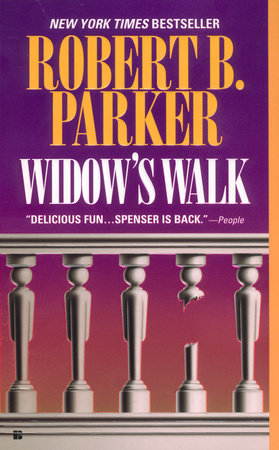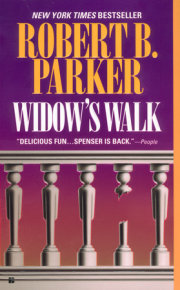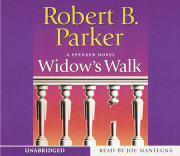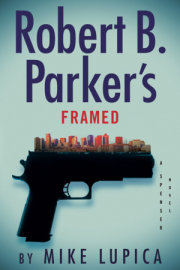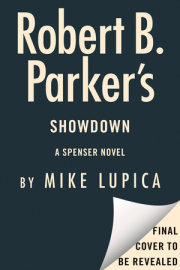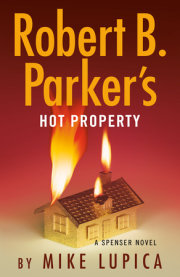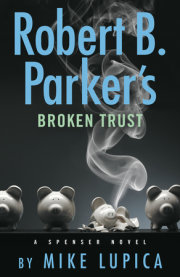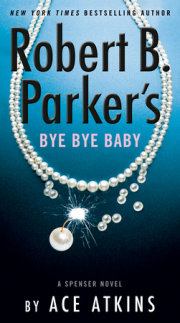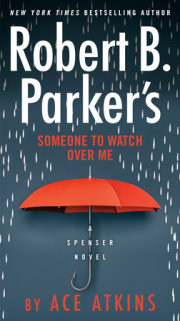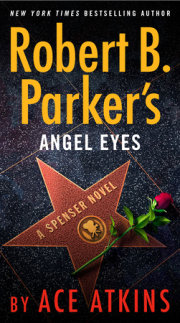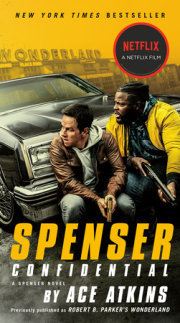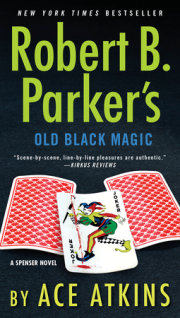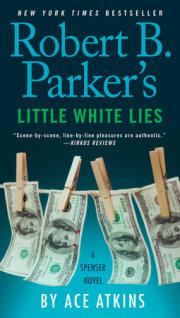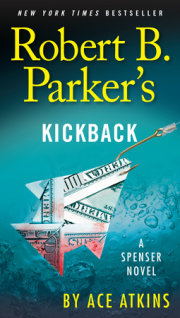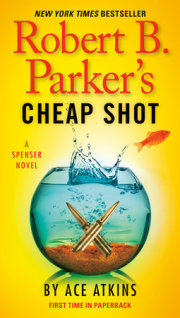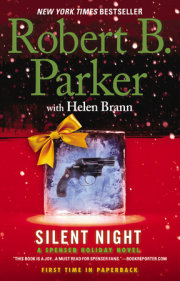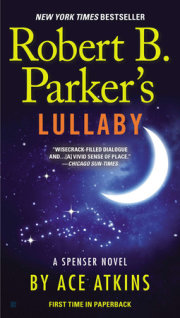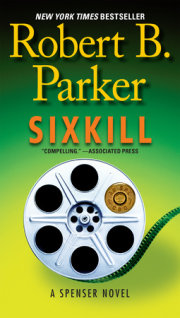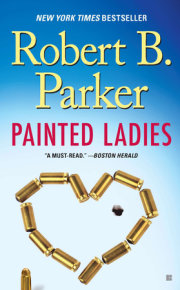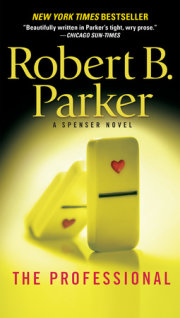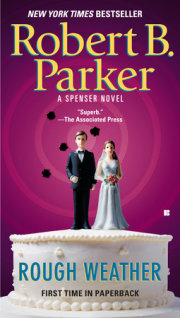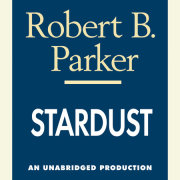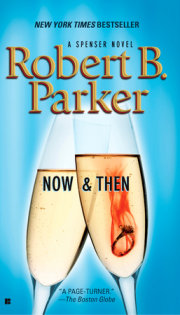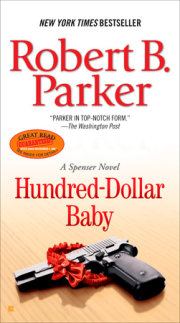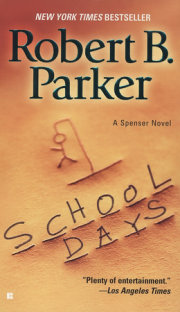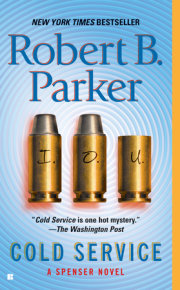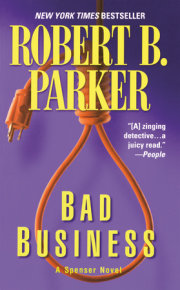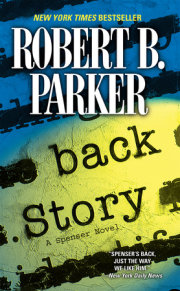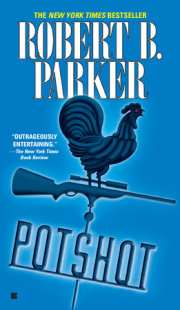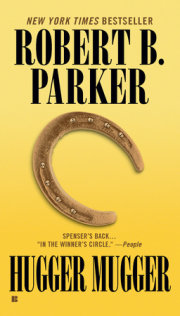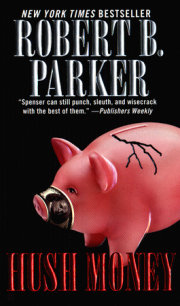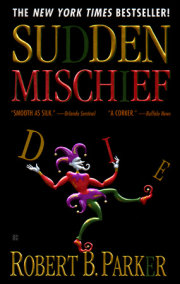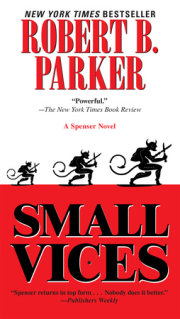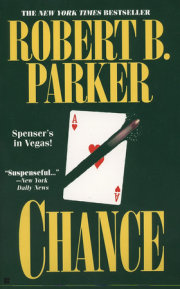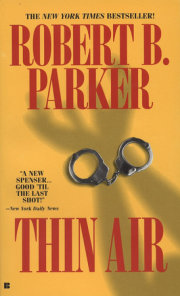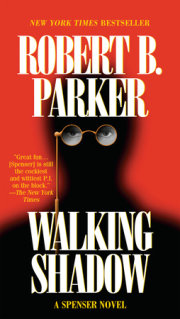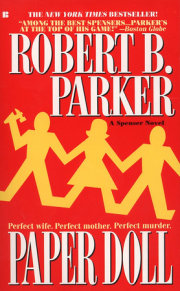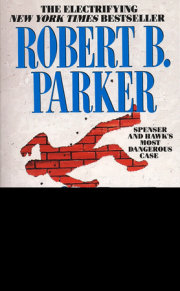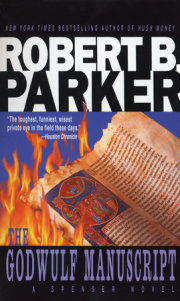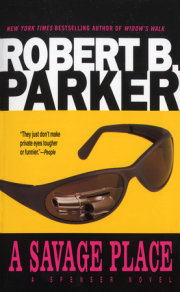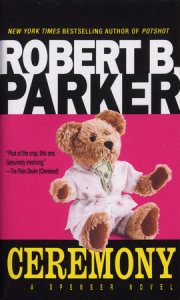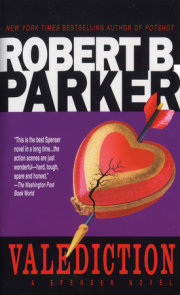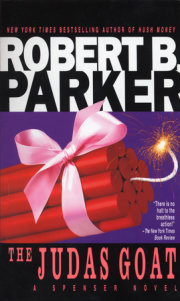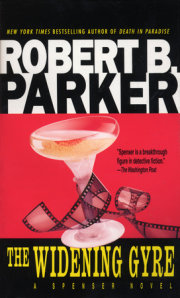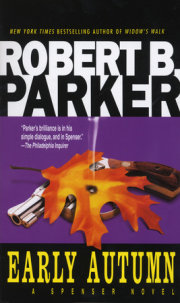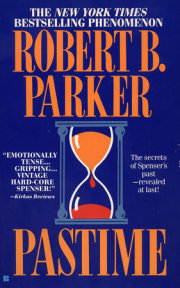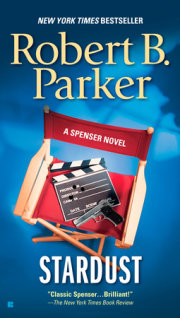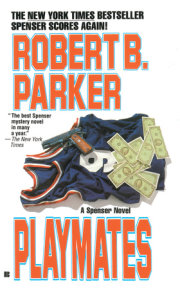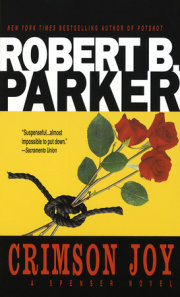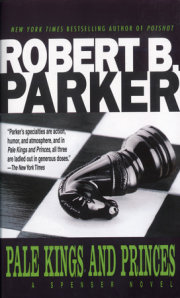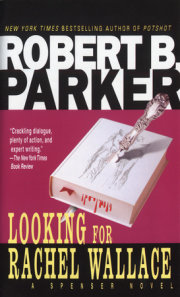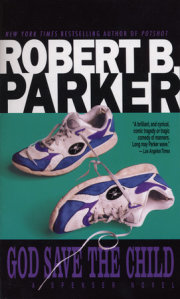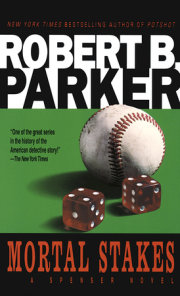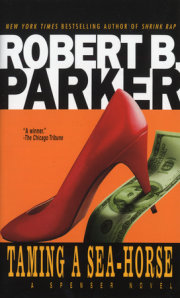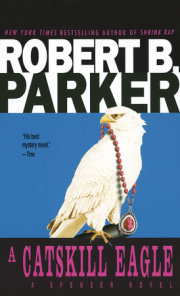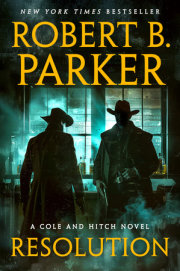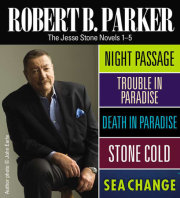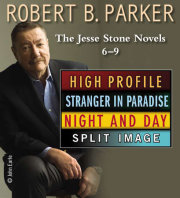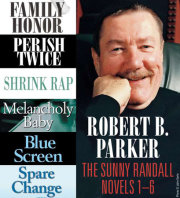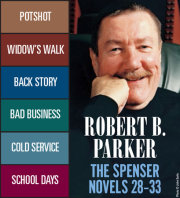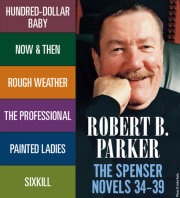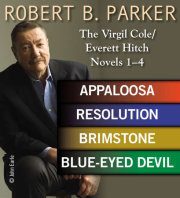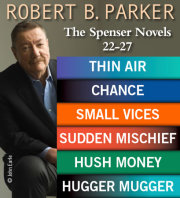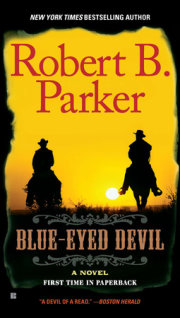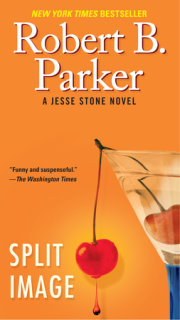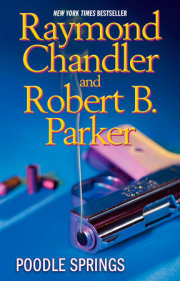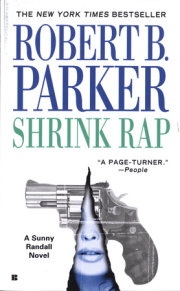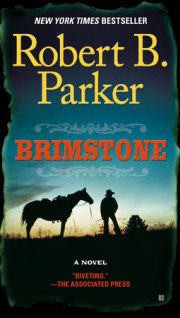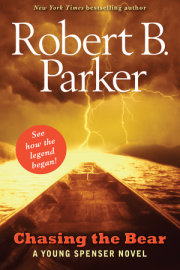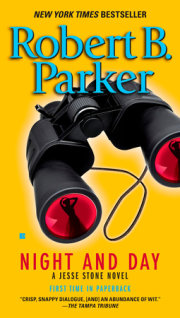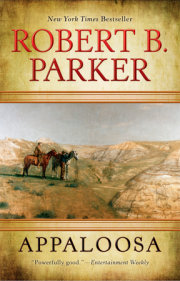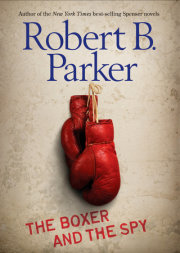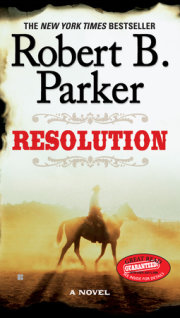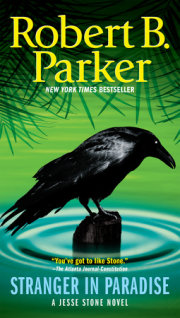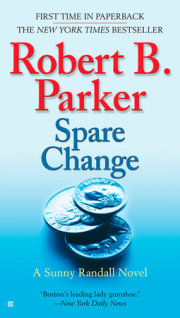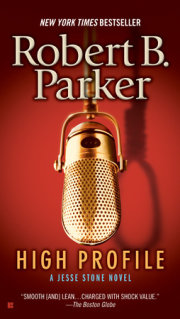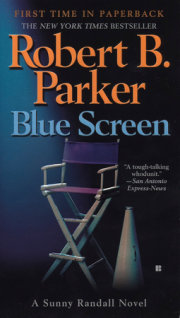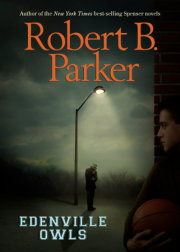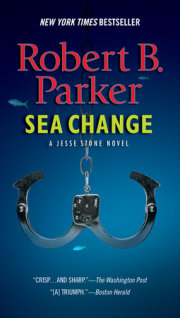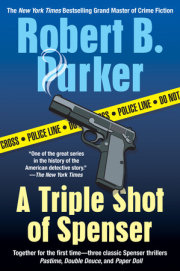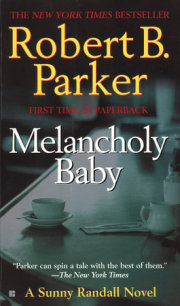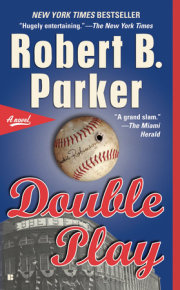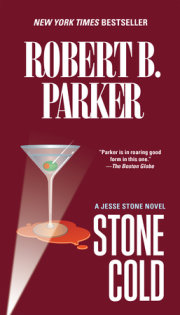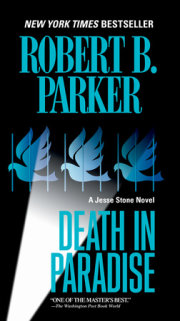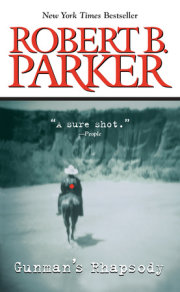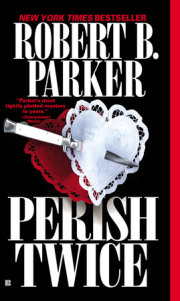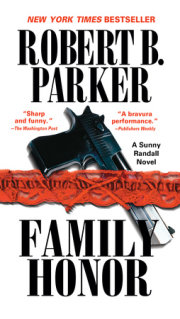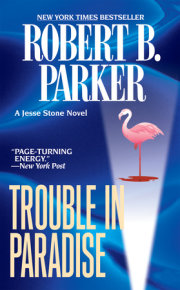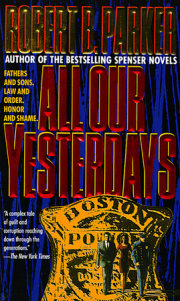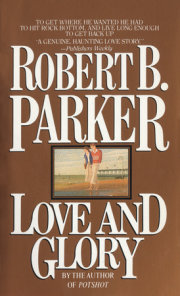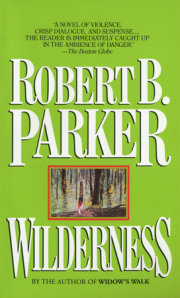ONE"I think she's probably guilty," Rita Fiore said to me.
We were in her office, high up, with a view of the harbor.
"And you're her lawyer," I said. "
Tells you about her case," Rita said. She sat on the edge of her desk in front of me, her thick red hair gleaming. She had on a black suit with a very short skirt. Rita knew her legs were good.
"But you'll represent her anyway."
"Like everyone else," Rita said, "she's entitled to the best defense she can get."
"Or afford," I said.
Rita smiled. "Or afford."
"She got money?"
"Oodles," Rita said.
"Last time I worked for you," I said, "I almost got killed."
"I know," Rita said. "We could give you hazardous-duty pay."
"It's all hazardous duty," I said. "Tell me about your client."
"Mary Smith."
"Mary Smith?"
"Honest to God," Rita said. "It's her real name. She was married to the victim, Nathan Smith. Her maiden name was Toricelli."
"She have oodles of money before she married him?" I said.
"No."
"Ah ha!"
"Ah ha?"
"It's an investigational term," I said. "That where the oodles come from?"
"Yes."
"They the same age?"
"He married her when she was twenty-three and he was fifty-one."
"Prior marriages?"
"None. For either."
"How old is she now?"
"Thirty."
Rita had her legs crossed. She bounced the top leg a little, looking at the point of her shoe. The shoe had a very high heel. It looked uncomfortable. But good.
"Anyone else in her life?"
Rita shook her head sadly. "God," she said. "You're a cynical bastard."
"Anyone?"
"Cops suspect her of an affair or two."
"With?"
Rita smiled. "Youwant them in chronological order?" she said. "Or alphabetically?"
"You can give me a list," I said. "What's the prosecution's case?"
"He was discovered naked in his bed with a hole in his head made by a forty-caliber slug."
"They find the bullet?"
"Yes. After it went through his head it tore through the mattress and lodged in the baseboard. Angle of the shot suggests that it was fired by someone in bed beside him."
"She have an alibi?"
"No. She says she was downstairs in the library watching television."
"She hear the shot?"
"No. Says the TV was on loud and her door was closed so as not to wake him up."
"So she found him that way when she went up to bed."
"Yes. They didn't share a bedroom, but she usually stopped in to say good night."
"Did he normally sleep naked?" I said.
"I don't know."
"Okay," I said. "She's a good candidate. But they got to have more than that to prosecute."
"They had a huge fight earlier in the evening. He actually slapped her."
"Witnesses?"
"Two dozen. It was a big cocktail party in Brookline."
"And I assume she's his heir," I said.
"Yes."
"And there's more," I said.
"Unfortunately, yes. Prosecution has a witness who says she tried to hire him to kill her husband."
"And he declined?"
"He says he did."
"He make a deal for his testimony?"
"Yes. They picked him up for something unrelated. He said if they could work something out, he could help them with this case."
"Which is a high profiler," I said.
"The Smiths first came to Boston on the Mayflower," Rita said.
"The Mayflower didn't come to Boston," I said.
"Well, they've been here a long time," Rita said.
"But the cops can't put her in the room when the gun went off," I said.
"No."
"No powder residue on her hands."
"No. But he did."
"Shot at close range," I said. "Put his hands up to try and stop the bullet?"
"That's the police theory."
"Everybody knows about powder residue anyway," I said. "She could have worn gloves."
"Police didn't find them."
"You can flush those latex jobs down the toilet like a condom."
"I've heard that can happen," Rita said.
"I'll bet you have," I said.
"I meant about the gloves," Rita said.
"Oh."
"There is probably more," Rita said. "But that's what I know they've got so far."
"You think they can convict her on that?" I said.
"Motive, and opportunity, prior solicitations to murder. Plus the jury won't like her."
"Because?"
"Because she's what my mother would have called cheap. She's too pretty, too made up, too blond, lot of attitude, drinks to excess, probably does dope, sleeps around."
"Sounds like a great date," I said.
"And her diction is bad," Rita said. "She sounds uneducated."
"Juries don't like that?"
"They are more inclined to think you're innocent if you sound like Barbara Walters," Rita said.
"You think Barbara would be a good date?"
"Oh, oink," Rita said.
"You think the prosecution knows stuff they haven't told you?" I said.
Rita had thick dark red hair which glinted in the sunlight that streamed through her big picture window.
"Maybe," she said.
"What about full disclosure?" I said.
"What about the Easter bunny?" Rita said. "You want to see what you can find out?"
"Sure."
—Reprinted from Widows Walk by Robert B. Parker by permission of The Putnam Publishing Group, a member of Penguin Group (USA) Inc. Copyright © 2002, Robert B. Parker. All rights reserved. This excerpt, or any parts thereof, may not be reproduced in any form without permission.
Copyright © 2003 by Robert B Parker. All rights reserved. No part of this excerpt may be reproduced or reprinted without permission in writing from the publisher.

